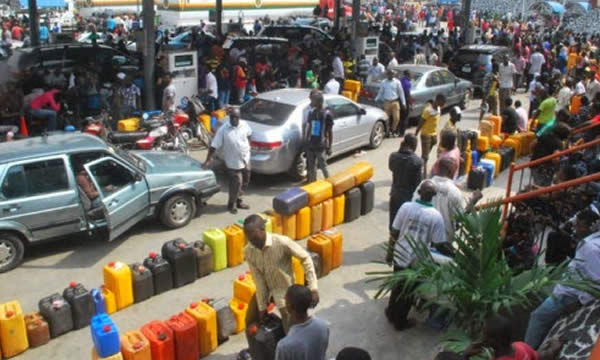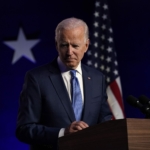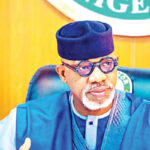
WADEMOS, a coalition of 30 civil society organisations in the ECOWAS region, also challenged the Independent National Electoral Commission to give clarification on the constitutional requirements for a candidate to be declared winner in the presidential election scheduled for February 25.
The organisation which includes Center for Democratic Development and YIAGA Africa, warned that the failure to provide the clarification ahead of the election could result in disputes and possible violence in the event of a run-off.
Speaking with journalists in Abuja after its pre-election solidarity mission to Nigeria ahead of the forthcoming polls, the Director of Advocacy and Public Engagement in CDD-Ghana, Kojo Asante, said the mission recognised the importance of the forthcoming election, considering the strides that Nigeria had made in sustaining democracy over the last 24 years without any unconstitutional interruptions.
According to him, the mission had met with an array of stakeholders in Nigeria, including ECOWAS, INEC, National Human Rights Commission, National Peace Committee, the Inter-party Advisory Council, and a segment of media and CSOs representatives.
He said large-scale malfunctioning of the Bimodal Voter Accreditation System on election day could cause anxiety and panic among voters.
The mission stressed the need for INEC to adhere to the contingency measures proposed to provide the necessary safeguards and assurance for citizens.
Asante said, “Observations have been made about multiple security concerns that could significantly threaten the smooth conduct of the elections. These include the strong undertone of religious and ethnic tensions taking center-stage in the political discourse and debate among political parties and candidates alike. Also, the fact of sustained insecurity across the country as a result of increased incidences of kidnapping, banditry, insurgency, separatist groups creates a high level of uncertainty among the population.
“Another issue of concern is around the deployment of materials and logistics ahead of the election. This fear is exacerbated by the current long-running incidence of fuel scarcity in the country. We strongly note the postponement of previous elections in Nigeria, partly due to logistical concerns.
“The government must also improve availability of fuel to mitigate the effect that the current shortages could have on the election. This has the tendency of increasing voter apathy and turnout particularly for voters who will travel long distances to their polling stations. Again, it has implication for the movement of security personnel and patrol teams that will be deployed to provide security for the election.
“INEC should provide clarity on the electoral law which stipulates that the winner of the presidential race must attain majority of total votes and 25 per cent of votes in at least two-thirds of states in Nigeria, and the FCT. This is against the backdrop of multiple interpretations assigned to the law and expected competitiveness around the 2023 presidential race.
“Again INEC must consider further expanding the deadline for distribution of PVCs and also expedite the disbursement of the cards to all registered voters to avoid disenfranchising voters due to the proposed ‘No Verification No Vote’ requirement for the election. In the same vein, registered voters who have not yet collected their PVCs should endeavor to go and collect them at designated collection points before the deadline elapses.”





